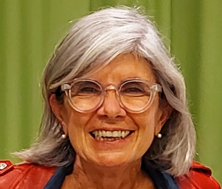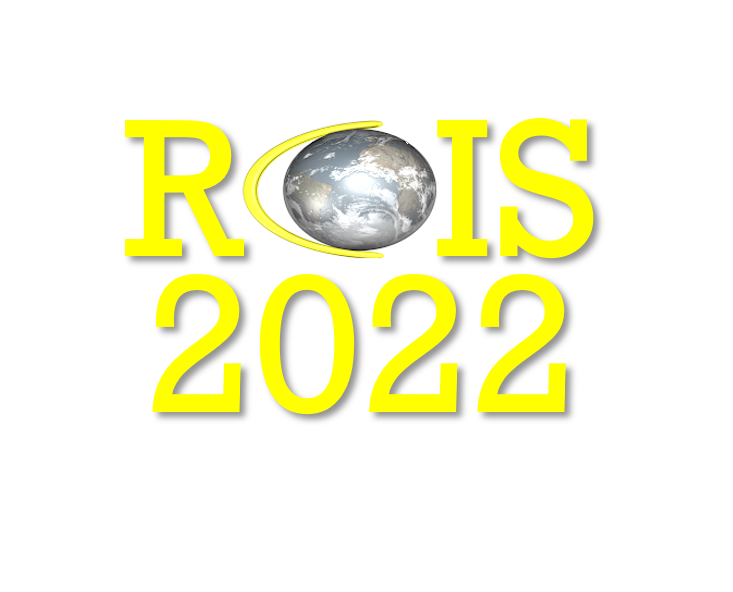

Prof. Dr. Barend Mons
Human Genetics Department LUMC
President CODATA
Scientific Director of the GO FAIR Foundation
Wednesday, May 18, 9h30 – 10h30
The FAIR Guiding Principles in Times of Crisis
Biography:
Barend Mons (born 1957, The Hague) is a molecular biologist by training and a leading FAIR data
specialist. The first decade of his scientific career he spent on fundamental research on malaria
parasites and later on translational research for malaria vaccines. In the year 2000 he switched to
advanced data stewardship and (biological) systems analytics. He is currently a professor in Leiden
and most known for innovations in scholarly collaboration, especially nanopublications, knowledge
graph based discovery and most recently the FAIR data initiative and GO FAIR. Since 2012 he is
Professor in biosemantics in the Department of Human Genetics at the Leiden University Medical
Center (LUMC) in The Netherlands. In 2015 Barend was appointed chair of the High Level Expert Group
on the European Open Science Cloud. Since 2017 Barend is heading the International Support and
Coordination office of the GO FAIR initiative. He is also the elected president of CODATA, the
standing committee on research data related issues of the International Science Council. Barend is a
member of the Netherlands Academy of Technology and Innovation (ACTI). He is also the European
representative in the Board on research Data and Information (BRDI) of the National Academies of
Science, Engineering and Medicine in the USA. Barend is a frequent keynote speaker about FAIR and
open science around the world, and participates in various scientific advisory boards of
international research projects.

Prof. Dr. Florence Sèdes
IRIT - Université Toulouse III - Paul Sabatier
Thursday, May 19, 9h30 – 10h30
We are open. The door is just very heavy
(New challenges in Information Science or how can IS help with fairness,
diversity,
non-discrimination?)
Abstract:
Laws and administrative rules have been addressing disability
and accessibility, through quotas and financial penalties, or students’
social criteria assessment on French national ranking platforms. Such
official measures enable minorities and other discriminated groups to be
represented. As half of the humanity does not constitute a minority, no
quota policy is supposed to be applied, leaving gender imbalance as a
potential issue. Academics have launched various inquiries and studies
on this issue (Mothers in Science, UNESCO I’d Blush if I Could,…), that
is crucial because of the female under-representation in scientific
fields in STEM (Science, Technology, Engineering, and Mathematics).
”Gender equality paradox” names the observation that the
under-representation of women in scientific fields (in particular those
related to STEM) is stronger in the most developed countries. As one
says: “We are open. The door is just very heavy”. The door is not closed
but women must get a foot in the door to be invited, integrated,
accepted, and hired. Women fight to break the glass ceiling in many
professions. At the same time, as they can encounter obstacles, the
sticky floor restricts them to relative non strategic positions and
prevents their scientific career from really taking off. The tooth paste
tube phenomenon is also invoked as a metaphor that illustrates how few
female colleagues must assume the committees and representations for the
community to comply with F/M quotas when required for hiring or
mediating, for instance. The consequence can be an over-solicitation and
over-impact on the communities.
The facts are horrendous and actions have hence to be taken to reach a
global balance with mixity, inclusiveness and fair cohabitation without
discrimination. All the launched initiatives testify this awareness. As
a warning underlies the need to support these actions, one must take
care of a negative effect on under-represented members by (unfairly)
reinforcing their impostor syndrome. Inside the science itself, and not
only in terms of population or scientometrics, a new phenomenon arises
with the evolution of topics, technics and tools. One striking example
is the risk with gender and minority “invisibilisation” in AI, as the
social representation biases are emphasized (few entries in Wikipedia,
Matilda effect, lack of historical figures and illustration, rare “role
models” in science, …) with unbalanced learning data. The dual issue is
how rule-based systems and by whom, if any bias here also, are encoded
to be aware of all the diversity any decision implies.
Biography:
Florence is full professor in Computer Science, Université Toulouse
III Paul Sabatier (Sciences – Toulouse 3) since 2000. She is member of
IRIT lab (Institut de Recherche en Informatique de Toulouse – Computer
Science Research Institute Toulouse), and Vice-president, Université
Toulouse III Paul Sabatier, in charge of Societal responsability. She was
deputy director of the IRIT lab (2010-2013) and head of the national
research network GDR i3 (information Interaction artificial Intelligence) of
the French national research center CNRS (2000-2012). She has been
nominated by the French Ministry at the National Council of Universities,
for the Computer Science section.
Florence’s main research topics are related to the data science field,
with strong contributions to data variety and velocity (heterogeneity,
dynamicity). The integrating and aggregating data model and framework
she has proposed with her team has been validated in applications
dedicated to multimedia, social interaction analysis, CCTV, social media
and IoT. Also, she is focusing on AI biases and cybersecurity leading to
high ranked papers.

Dr. Alberto Abelló
Database Technologies and Information Management Group
Universitat Politecnica de Catalunya, Spain
Friday, May 20, 9h30 – 10h30
Big DataBase Management System
Abstract:
A Big Data system is a tiny fraction of analytical code
surrounded by a lot of "plumbing" devoted to manage the generated models
and the associated data. Hence, we can consider that plumbing to be
mimicking a DBMS, which is indeed a complex system that actually has to
serve different purposes and hence provide multiple and independent
functionalities. Thus, it can neither be studied nor built
monolithically as an atomic unit. Oppositely, there are different
software inter-dependent components that interact in different ways to
achieve the global purpose. Similarly to DBMS, in a Big Data system, we
have to understand among other issues how our system is going to collect
data; how these are going to be used; where they are going to be stored;
how they are going to be related to the corresponding metadata; if we
are going to use any kind of master data, where these will come from and
how they will be integrated; how are the data going to be processed; how
replicas are going to be managed and their consistency guaranteed; etc.
In this talk, I will discuss the difficulties to build such system,
paying special attention to how metadata can help storage and
processing.
Biography:
Alberto Abello is associate professor at Universitat Politecnica
de Catalunya (UPC), Barcelona, where he obtained his doctorate in 2002
and has been working as a lecturer and researcher since then. His areas
of expertise are Databases, in general, Data Warehousing and Big Data
Management.
He has held research stays at the Universidad de Granada (Spain),
Technische Universitat Darmstadt (Germany), Claude Bernard Lyon 1
University (France), the Universidad de la Republica (Uruguay) and the
University of Edinburgh (Scotland).
He has coordinated at UPC European Erasmus Mundus programmes, both at
the master and PhD levels, and a MSCA-ITN-EJD, as well as H2020 projects
and R&D agreements with companies such as Hewlett Packard, Zurich
Insurance, SAP or the World Health Organization. He has also
participated in more than ten national research projects or networks of
excellence.
e has successfully advised nine PhD thesis, whose research results
contributed to publish more than 40 journal and 80 conference articles,
as well as more than 10 book chapters, for an H-index of 31 (according
to Google Scholar).
He has served in more than 50 programme committees, chairing DOLAP'08,
MEDI'12 and DOLAP'18, and acting as local organizer of eBISS'15 and
MEDI'17. Currently member of the editorial board of Data&Knowledge
Engineering.
He has led different projects for development cooperation, including the
collaboration with the department of Neglected Tropical Diseases of
World Health Organization and Probitas Foundation.



